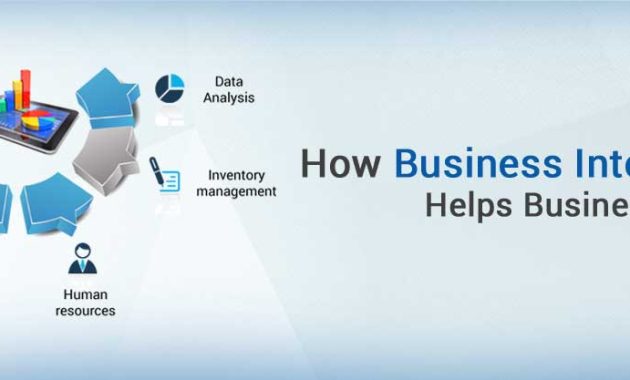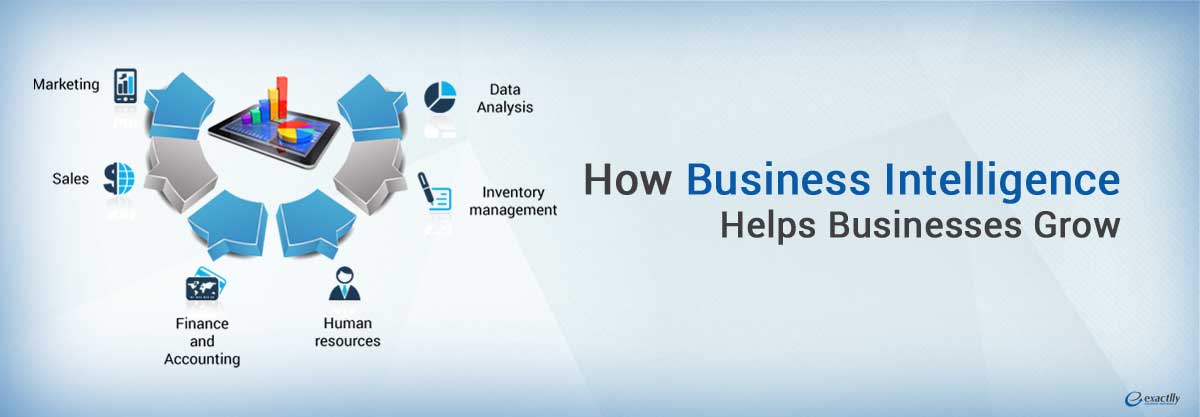
Expert Tips on Business Intelligence Software for Business Growth: A Comprehensive Guide
In today’s data-driven world, businesses are constantly seeking ways to gain a competitive edge. One of the most powerful tools available is Business Intelligence (BI) software. This guide provides expert tips on business intelligence software for business growth, helping you leverage data to make informed decisions and achieve your strategic objectives. We’ll delve into the benefits, features, and implementation strategies, empowering you to harness the full potential of BI for your organization. The right business intelligence software can be a game-changer, allowing you to analyze data, identify trends, and optimize performance. This article will explore how to choose the right BI tools and use them effectively.
Understanding the Power of Business Intelligence
Business Intelligence (BI) software goes beyond simple data reporting. It transforms raw data into actionable insights. This transformation empowers businesses to understand past performance, predict future trends, and make proactive decisions. BI tools provide a comprehensive view of operations, enabling you to identify areas for improvement and capitalize on opportunities. By analyzing data from various sources, BI helps uncover hidden patterns, correlations, and anomalies that might otherwise go unnoticed. The insights gained from BI can drive innovation, enhance efficiency, and boost profitability. Effective BI implementation is a crucial step for modern businesses looking to thrive.
Key Benefits of Business Intelligence Software
Implementing business intelligence software offers a multitude of benefits. These include:
- Improved Decision-Making: BI provides data-backed insights that inform strategic decisions.
- Enhanced Efficiency: Automation and streamlined reporting save time and resources.
- Increased Revenue: Identify opportunities for growth and optimize sales strategies.
- Cost Reduction: Identify and eliminate inefficiencies, reducing operational costs.
- Better Customer Understanding: Gain insights into customer behavior and preferences.
- Competitive Advantage: Stay ahead of the competition by leveraging data-driven insights.
These benefits are not just theoretical. Many businesses have experienced significant improvements after adopting business intelligence software. For instance, a retail company might use BI to analyze sales data, identify top-selling products, and optimize inventory management. A manufacturing firm can utilize BI to monitor production efficiency, identify bottlenecks, and improve overall output. The applications are vast and varied, making BI a valuable asset across diverse industries. The core benefit is the ability to make data-driven decisions.
Choosing the Right Business Intelligence Software
Selecting the appropriate business intelligence software is crucial for success. Several factors need consideration during the selection process:
Assess Your Business Needs
Before choosing any business intelligence software, define your specific requirements. What are your key performance indicators (KPIs)? What data sources will you need to integrate? What types of reports and dashboards are essential? Understanding your needs ensures you select a solution that meets your requirements. This involves identifying the key business questions you need to answer and the data needed to answer them. Consider the existing data infrastructure and the level of technical expertise within your organization. This assessment will guide you to the suitable BI tools.
Evaluate Software Features
Different BI software solutions offer various features. These are important to consider when selecting a business intelligence software. Key features include:
- Data Integration: Ability to connect to various data sources.
- Data Visualization: Tools for creating charts, graphs, and dashboards.
- Reporting: Capabilities for generating customized reports.
- Data Analysis: Advanced analytics and data mining capabilities.
- User Interface: Ease of use and intuitive design.
- Scalability: Ability to handle growing data volumes.
Compare different software options based on these features. Ensure the software aligns with your business goals. Consider factors such as data security, user access, and integration capabilities. Evaluate the vendor’s support and training resources. This is crucial to ensure a smooth implementation and ongoing success. The right features will empower your team to extract valuable insights.
Consider Deployment Options
Business intelligence software can be deployed in several ways:
- On-Premise: Software installed on your servers, providing full control but requiring IT infrastructure.
- Cloud-Based (SaaS): Hosted by a vendor, offering flexibility and scalability, often with lower upfront costs.
- Hybrid: A combination of on-premise and cloud solutions.
Choose the deployment option that best suits your budget, IT infrastructure, and security requirements. Cloud-based solutions are generally more affordable and easier to implement. They offer scalability and require minimal IT support. On-premise solutions provide greater control. They are suitable for organizations with existing infrastructure. Hybrid solutions can offer the best of both worlds. This depends on your specific needs and preferences. Consider the long-term implications. The right deployment strategy can impact your overall success.
Expert Tips for Successful Business Intelligence Implementation
Implementing business intelligence software is a process that requires careful planning and execution. Here are some expert tips on business intelligence software for business growth:
Start with a Clear Strategy
Define your BI strategy. This includes your goals, objectives, and the key metrics you want to track. Identify the stakeholders and their roles in the implementation process. Develop a detailed implementation plan. This plan will outline the steps, timelines, and resources required. A well-defined strategy provides a roadmap for success. It ensures that your BI initiatives align with your overall business goals. This will help you to stay focused. It also prevents scope creep and ensures a successful implementation. This strategy is critical for long-term growth.
Prioritize Data Quality
Data quality is paramount. Ensure your data is accurate, consistent, and reliable. Establish data governance policies to maintain data integrity. Implement data cleansing and validation processes. This will ensure you can trust the insights derived from your BI tools. Poor data quality will lead to flawed decisions. This can undermine the effectiveness of your BI initiatives. Investing in data quality upfront will save time and resources. It will also ensure the accuracy of your insights. A focus on data quality is essential.
Provide User Training and Support
Training your team on the use of the business intelligence software is crucial. Provide comprehensive training and ongoing support. This will ensure that users can effectively utilize the software’s features. Offer training on data analysis, reporting, and dashboard creation. Encourage users to explore the software and ask questions. Create a culture of data literacy. This will empower your team to make data-driven decisions. Invest in user support resources. This will ensure that your team can resolve any issues quickly. User training is essential for driving adoption.
Foster a Data-Driven Culture
Promote a data-driven culture throughout your organization. Encourage employees to use data to inform their decisions. Communicate the value of BI and its impact on business success. Recognize and reward data-driven insights and achievements. Foster collaboration. This will enable teams to share data and insights. Leadership support is essential for fostering a data-driven culture. This will encourage employees to embrace data analytics. This will ensure the long-term success of your BI initiatives. A data-driven culture is key to unlocking the full potential.
Continuously Monitor and Optimize
Business intelligence software implementation is not a one-time project. It’s an ongoing process. Continuously monitor the performance of your BI tools. Track key metrics. Identify areas for improvement. Regularly review and refine your data models, reports, and dashboards. Stay up-to-date with the latest BI trends and technologies. This will ensure that your BI solution remains effective and relevant. Embrace a culture of continuous improvement. This will help you to maximize the value of your BI investments. This continuous monitoring helps to optimize the software.
Real-World Examples of Business Intelligence Software in Action
Many businesses across different industries are using business intelligence software to drive growth. Here are some examples:
- Retail: A retail chain uses BI to analyze sales data. They identify the best-selling products. They also optimize inventory levels.
- Healthcare: A hospital uses BI to analyze patient data. They improve patient outcomes. They also streamline operations.
- Manufacturing: A manufacturing company uses BI to monitor production efficiency. They also identify bottlenecks.
- Finance: A financial institution uses BI to analyze customer behavior. They improve customer service. They also detect fraud.
These examples illustrate the versatility of business intelligence software. They show the potential to enhance decision-making. They also highlight the diverse applications of BI. These examples will give you a better understanding. They will help you to envision how you can use BI in your business. The impact of BI is noticeable across various industries.
The Future of Business Intelligence
The future of business intelligence software is promising. Several trends are shaping the industry:
- Artificial Intelligence (AI) and Machine Learning (ML): AI and ML are being integrated into BI tools. This enables automated insights, predictive analytics, and more.
- Self-Service BI: Empowering business users with self-service tools. They can perform their own data analysis.
- Cloud-Based BI: The continued growth of cloud-based BI solutions. They offer scalability, flexibility, and cost-effectiveness.
- Data Democratization: Making data accessible to all users. This will foster a data-driven culture.
These trends will continue to evolve. They will transform the way businesses use data. They will enhance their decision-making processes. Businesses that embrace these trends will be well-positioned to thrive. They will gain a competitive advantage. They will also unlock new opportunities for growth. The future of BI is innovative and transformative.
Conclusion: Embracing Business Intelligence for Growth
Business intelligence software is a powerful tool. It can drive business growth and success. By following these expert tips on business intelligence software for business growth, you can maximize the value of your BI investments. Choose the right software, implement it strategically, and foster a data-driven culture. This will transform your decision-making processes. It will also enhance your overall business performance. Embrace the power of BI. This will help you to achieve your strategic objectives. Data is the key to the future of business.
[See also: Related Article Titles]

